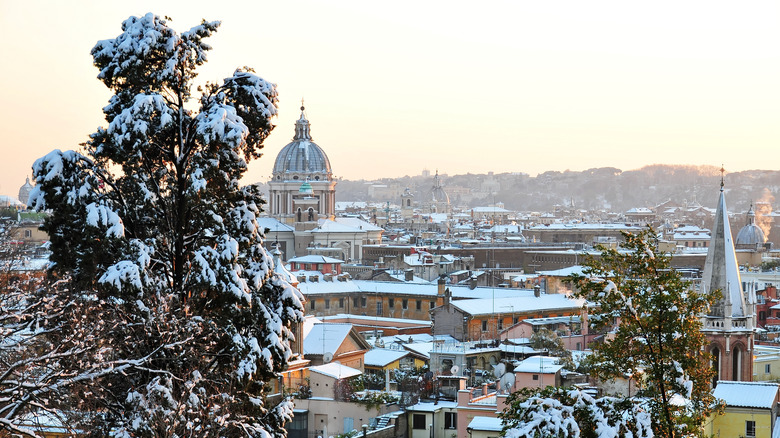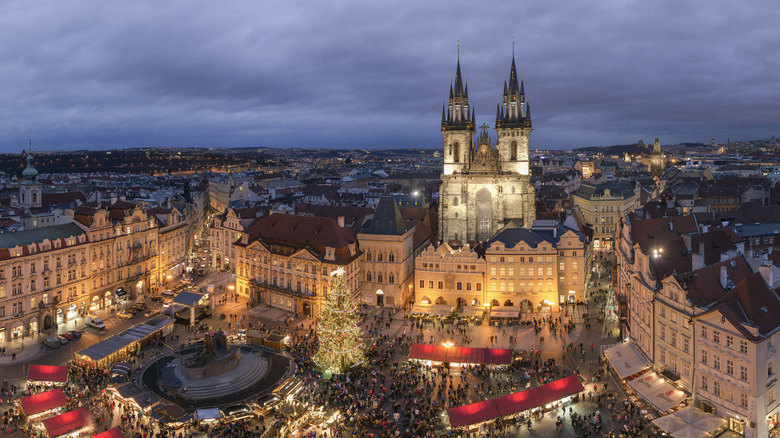The Best And Worst Aspects Of A Winter Vacation In Europe, According To Rick Steves
If you're planning a trip to Europe, chances are you're thinking about visiting in the summer. It's peak tourist season, with kids out of school, and the perfect time to soak up the sun. It's also likely packed solid with tourists. You'll be dealing with long lines from the Colosseum in Rome to the Louvre in Paris, ports full of cruise ships, and you might even have to fight to get a sun bed at the beach. This might be enough to make you consider taking your European vacation in the winter. There are both positives and negatives to that, according to travel pro Rick Steves. On his website, Steves says, "Bundle up and get convivial with Europe in the off-season and you'll understand why, for so many, that's a favorite time to travel."
Winter travel takes a bit more planning, of course. First, you're going to have to pack heavier clothing. Rick Steves has great tips for winter packing, which include layering and wearing your bulkiest items on the plane. (It's a great idea to master the "ranger roll" packing method to save suitcase space.) You'll also have to consider how much daylight will be available to see the sites. Steves says, "Because much of Europe is at Canadian latitudes, days are short, and it's generally dark by 5 p.m." Early risers may get more out of these trips because if you sleep until noon, half the daylight is already lost. Another thing to consider is that, in smaller towns, things may be closed or have shorter hours during the off-season. Still, with a little planning, you can get around all of that.
The benefits of traveling to Europe in the winter
While winter travel may take a bit more preparation, the benefits outweigh the issues. Rick Steves reminds us that you'll likely spend less money traveling during Europe's off-season, from November until March. He says, "Airfare is generally cheaper. Outside of places that get lots of business travelers, hotels and Airbnb-type rentals are also less expensive, and you can sometimes even bargain for deeper discounts." That is, of course, if you avoid the holiday travel rush. Still, even with holiday prices, you'll see things you wouldn't in the summer. Christmas markets in Europe can be wonderful to experience(and shop at), as cities are decorated with glittering lights and Christmas trees. The iconic market in the Old Town Square in Prague, for example, looks like a magical fairyland.
The weather might be frightful in some places, but if you're a fan of the cold or love winter sports, then this is the travel season for you. (If you've ever visited southern Europe in the summer, like Italy or Greece, you may be relieved that you aren't sweating all day long.) However, if you get chilly easily, it might be uncomfortable to walk around some European countries in the winter — that means it's the perfect time to explore a museum. Plus, you'll encounter fewer crowds, so you're likely to get closer to popular artworks. You can spend time lingering over food and drinks at a café and do some people-watching, as Steves sometimes does. He mentions that during the winter, you actually get to experience Europe the way the locals do. He says, "I enjoy catching Europe by surprise — at its candid best, living everyday life."

